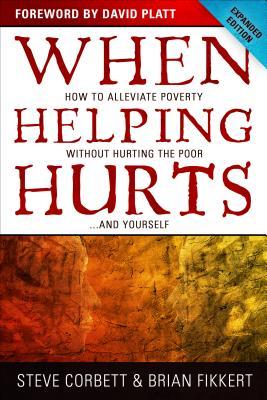“The Lord said to [Moses], “What is that in your hand?” He said, “A staff” (Exodus 4:2).
So far, this book is not light reading for when you can’t sleep at night. It’s deep and challenging and (on occasion) causes my head to hurt.
I have a couple of takeaways.
One is that when dealing with impoverished communities, the best way to look at the poor is not from a needs-based analysis, i.e. what do you lack in terms of material resources, finances, education, mindset, etc., but from an assets-based one which asks, “What is that in your hand?” In other words, what skills and talents do you bring to the table? What knowledge of your own community could you give us to help better serve you?
Another is instead of implementing a one size fits all blueprint approach to every crises or problem involving poor communities, the better way is a learning process, where instead of “doing to” and “doing for” the people we serve, we are “doing with,” involving these people in the process and actually empowering them to be a part of the solution to their problems.
Above all, the goal is to see the innate image of God in the people we serve, distorted as it may be from the effects of sin and the fall. It’s not us coming down from on high to serve those who aren’t as good as us, but broken people serving other broken people with the ideal scenario being that both parties learn and grow and change and find healing in the process.
Doing ministry in this way takes longer and goes against our microwave, fast-food, quick-fix mentality, but is by far the better way in the long run.
There will be more of these updates as I continue to make my way through this book. Seriously, it’s a very good book, but it’s like one of those books that I read in seminary. It makes me have to use muscles in my brain that I haven’t used in a while, so I may have to read parts more than once to really grasp it.
But that’s a good thing. Exercise is good, even if it gives me a sore brain in the morning, right?
PS I’ve included a link to the amazon webpage for this book if you’re interested in learning more about it or purchasing it. I recommend it for anyone who is even remotely interested in pursuing either short-term or long-term missions.
